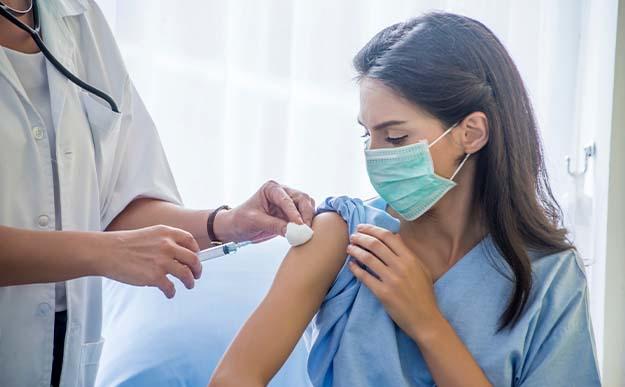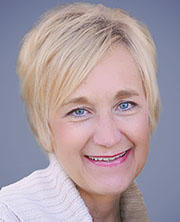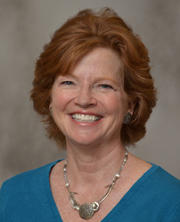Merck grant allows Dentistry researchers to study HPV vaccine hesitancy

A proposed study by two School of Dentistry researchers has received a $127,000, two-year grant to study hesitancy and willingness to provide HPV vaccinations among dental providers.
Cyndee Stull, DHSc, MDH, RDH, program director and director of the Division of Dental Hygiene, and Priscilla Flynn, DrPH, MPH, associate professor of dental hygiene, will use the grant funds provided by Merck to administer a survey of dental providers who practice in states that allow them to provide vaccines. The survey will examine dental providers’ experience with and hesitancy toward providing the vaccine, as well as their knowledge and attitude of the particular vaccine, in the hopes of mitigating barriers to its administration.
Stull and Flynn hope the research will help identify the reasons behind a troubling lack in HPV vaccination rates as HPV-related oropharyngeal cancer, the number one cancer associated with HPV, continues to rise. ‘Dental providers have the potential to influence patients’ vaccination decisions, particularly for oral health-related conditions,” Stull explained. “However, the literature shows that dental providers are hesitant to discuss HPV and advocate for the vaccine. Understanding the source of this hesitancy can direct future efforts to build dental providers’ confidence and willingness to discuss HPV and recommend the vaccine.”
Stull and Flynn are not new to this kind of research. Stull began studying the role of dental providers in HPV prevention in 2017, recently publishing a study with Elise Sarvas, DDS, MSD, MPH, on parents of adolescents and their perception of dental providers’ role in HPV prevention in the Journal of the American Dental Association. Merck, who manufactures the HPV vaccine, contacted Stull following that publication in an effort to support her research.
Flynn, who is the principal investigator on this research, shared Stull’s enthusiasm for and experience with vaccination and oral health research. Having previously engaged in women’s health research at Mayo Clinic, including on cervical cancer and HPV vaccination, Flynn was excited to continue this work with Stull by putting together a grant proposal.
“This is an opportunity to learn more about the potential to prevent cancers in the dental setting,” Flynn explained. “A cultural shift is also needed to accept vaccine administration by dental providers, and I think this is the biggest hurdle.”
Flynn and Stull recognize that dental providers may not see vaccine administration as part of their role, and that they may have concerns about their ability to provide vaccines. “Change is hard,” Flynn remarked.
However, they recognize the immense value oral health providers can have in cancer prevention through the use of this vaccination, and see this moment, where COVID-19 vaccination efforts have increased the visibility of oral health providers as vaccinators, as the right time to move forward.
Stull cited a “shift in the perception of dentistry and medicine toward the role of dental providers in vaccination” needed to further vaccine access for the general public. “I think we are on the cusp of moving toward expanded roles for dental providers,” she continued.
The HPV vaccine, which has a role in preventing oral cancer, is an excellent fit for this research. “The current HPV vaccine requires two doses administered six months apart. This aligns beautifully with six-month dental visits,” Flynn explained. “Adding the vaccine to periodic dental visits is a perfect fit.”
By studying dental providers who have the capacity to provide the vaccine, Stull hopes to “identify specific reasons for hesitancy so we can develop interventions.” This will lead to improved oral health outcomes through the HPV vaccine, but also open the door to further vaccine administration by dental professionals as well.
“Dentists and particularly dental hygienists and dental therapists can improve access to other vaccines, by providing them at routine dental visits,” Stull explained.
While the research is in its early stages, Flynn and Stull are both excited for what the future holds. Flynn reflected that “it’s always good news to have your research ideas validated by receiving funding.” Stull noted that she is “excited and itching to get started.”
“I think we’re at the beginning of a cultural shift,” said Flynn. “That is what I find exciting.”

